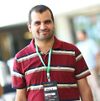Knowledge fuels change - Support energypedia!
For over 10 years, energypedia has been connecting energy experts around the world — helping them share knowledge, learn from each other, and accelerate the global energy transition.
Today, we ask for your support to keep this platform free and accessible to all.
Even a small contribution makes a big difference! If just 10–20% of our 60,000+ monthly visitors donated the equivalent of a cup of coffee — €5 — Energypedia would be fully funded for a whole year.
Is the knowledge you’ve gained through Energypedia this year worth €5 or more?
Your donation keeps the platform running, helps us create new knowledge products, and contributes directly to achieving SDG 7.
Thank you for your support, your donation, big or small, truly matters!
Webinar on Powering Humanitarian Health Operations : Sustainable Energy Solutions
May 2020
Powering Humanitarian Health Operations: Sustainable Energy Solutions
Webinar Recording
This webinar will shed light on why access to reliable energy is pertinent for powering health facilities in humanitarian settings, especially in the current COVID context. Presentations from Sustainable Energy for ALL and Médecins Sans Frontières will discuss the importance and options for achieving reliable energy access along with an example of renewable energy system implementation in health clinics. A renewable energy system specialist will then provide practical guidance for enabling reliable energy supply to build the resilience of health systems.
Presentations
- Powering Healthcare Sustainable Energy for Humanitarian Health Response
- Renewable Energy for Health System Resilience Strategies for Planning and Implementation
Q&A
Speakers
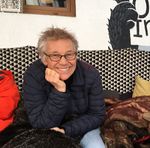 |
Nan Buzard, International Committee of the Red Cross (ICRC)
As ICRC’s Head of Innovation, Nan Buzard works with 18,000 staff across 80 countries on some of the most interesting initiatives in humanitarian action. She served in Bosnia with the International Rescue Committee in 1996, led the Sphere Project, and worked for the United Nations High Commissioner for Refugees and the American Red Cross. She was also the Executive Director of International Council of Voluntary Agencies. Nan received the Global Leadership in Emergency Public Health award from the World Association for Disaster and Emergency Medicine in 2009. She was one of the Obama administration’s Champions of Change and served five years as the Steering Committee Chair of the Active Learning Network for Accountability and Performance (ALNAP). In 2019 Nan joined the Grand Challenges Canada Scientific Advisory Board. Her Master’s in Public Administration is from Harvard University. She is a big fan of cold-water swimming | |
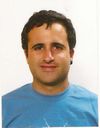 |
Inaki Goicolea, MSF Spain
Iñaki Goicolea is an Electrical Engineer specialized in the humanitarian aid world. Iñaki has worked with MSF for several years in the field all around the globe (CAR, Congo, Iraq, South Sudan, Paraguay, India, Niger, Sierra Leone …) as technical advisor and then as Logistics Coordinator. In the last 2 years he has been working at MSF’s headquarter office in Barcelona overseeing several energy projects; such as off-grid photovoltaic systems in geographically remote areas. | |
 |
Talal Kanaan, Independent Renewables Specialist | |
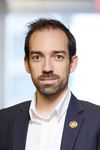 |
Luc Severi, Sustainable Energy for All |
Resources
- SELCO Foundation: Sustainable Energy Access for COVID-19 Testing
- Energy for Rural Health Centers
- Powering Health (USAID): http://www.poweringhealth.org/index.php
- Powering Healthcare (SEforALL): https://poweringhc.org/resources/
- COVID-19 Response: Powering Health Facilities (SEforALL): very helpful compilation of technical resources and news
- HOMER Powering Health Tool: https://poweringhealth.homerenergy.com/
Feb 2020
Energy Efficiency and Designing for Sustainability in Humanitarian Response
Webinar Recording
This webinar will discuss the different approaches for making humanitarian operations energy-efficient and also how they contribute to the overall sustainability of humanitarian operations. ICRC will present its sustainability and energy efficiency principles. NRC Jordan and MSF will then highlight the green building program in Jordan and solar-powered AC systems for humanitarian operations respectively.
Presentations
Speakers
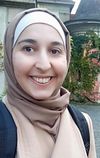 |
Lama Gharaibeh, Norwegian Refugee Council (NRC), Jordan
Lama Gharaibeh works on supporting the Syrian Refugee Crisis in Jordan under the Renewable Energy and Energy Efficiency programs, developing solutions to refugees and host communities by linking the energy aspects on the multi programs activities in Shelter, Education, Youth and livelihood, and advocating for the humanitarian sector to take a role in adapting energy response in the programs and operations. Currently Lama is the Renewable Energy Technical Officer in NRC Jordan Office and Chair of Greening the Orange Task Force. | |
 |
Marpe Tanaka, MSF
Marpe works as Innovation Lead at the MSF Sweden Innovation Unit (SIU). He has academic degrees in industrial design as well as development studies from Lund University, Sweden. After running his own companies and working as a field logistician for MSF he was involved in the starting up and development of the SIU since its inception in 2012. His work within the unit includes everything from outlining strategies, setting up partnerships, method development to starting up and coordinating cases dealing with everything from sustainable energy solutions to health care activities. He is passionate about humanitarian problem solving and innovations that are based on human-centred approaches. | |

|
Pavlos Tamvakis, ICRC
Pavlos is the Head of Construction of the ICRC Water and Habitat Unit at Geneva HQ, leading large-scale health and other related infrastructure projects in countries affected by armed conflict and natural disasters. He studied Architecture Engineering at Cardiff University of Wales and Civil Engineering at Aristotle University of Thessaloniki. He holds a MSc in Environmental Sustainability & Environment, MSC in Construction Project Management and a Specialization in Assessment and Management of Geological and Climate – related risks. |
Further Resources
- Solar Air Conditioning: https://innovation.lakareutangranser.se/cases2/2018/5/21/solar-air-conditioner
- Sustainable off-grid oxygen concentration with direct solar power (SOX): https://innovation.lakareutangranser.se/cases2/2018/3/2/sustainable-off-grid-oxygen-concentration-with-direct-solar-power-sox
- Energy Sensitization: https://innovation.lakareutangranser.se/cases2/energysensitization
Jan 2020
Powering Humanitarian Facilities: Dialogue on Implementation Models
Webinar Recording
How can humanitarian agencies move from procure and provide to buying energy as a service? This webinar will shed light on the different models for powering humanitarian facilities with renewable energy. Two case studies will highlight how renewable energy is used to power a humanitarian hub managed by IOM in South Sudan, and focus on the challenges and lessons learnt from ICRC’s net metering program in Pakistan. UNDP will then share their approach to building local capacity when implementing solar solutions for humanitarian facilities.
Presentation
Q&A
Speakers
| Naseer Ahmed, ICRC Pakistan
Naseer Ahmed, certified project and facilities management professional having masters in international Relations along with 14 years of experience in administrative, security and facilities management with the additional role of trainer for passive security measures like fire-fighting, office safety, hygiene standards within the developmental sector. Five years’ experience of sustainable development program for energy savings, alternative energy, Garbage recycling and water savings. Moreover, also worked in Malaysia and Mozambique Africa for Premises Administration support mission. Overall work experience entails, proactive planning, designing projects, project management, designing and constructing new office premises. Furthermore, having specialities also in events management, active and passive security, staff development and other administrative procedures required to run the office environment. | ||
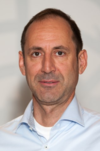 |
Gerald Demeules, UNDP
Gerald has 30 years of experience in ICT and green energy with technical and humanitarian organizations. Since 2010, he is the UNDP Chief of the Country Offices ICT Advisory Services based in Copenhagen. His team leads the implementation of Smart UN Facilities consisting of 4 pillars: Energy and eMobility; ICT Infrastructure and Business solutions; Security; and Internet of Things. Gerald joined the UN in 1998 as the Project Manager of the Global Communications Infrastructure (GCI) of the Comprehensive Nuclear-Test-Ban Treaty Organization - CTBTO. In 2007, he was appointed to the Chief of ICT Services for the UN Mission in Liberia. He led the “Delivery as One” initiative in collaboration with the UN country teams, establishing and developing unified common ICT services. Moreover, Gerald was a co-chair of the UN-Development Group (UNDG) ICT Reference Group, the UN inter-agency committee coordinating ICT collaboration and harmonization between all UN Agencies, funds and programmes. Gerald started his career as a research associate (1988-89) at the Centre de recherche industriel du Québec (CRIQ) . He served as an Officer in the Canadian Armed Forces (1989-95), as the Chief of ICT Services and Operations Officer across Canada, Israel/Syria (1992) and Ex-Yugoslavia (1995) and the Head of National Command and Control Information Strategic Systems (NCCIS) from (1995-98). Gerald holds a Bachelor in Mechanical Engineering from the Royal Military College of Canada (1982-87) and a Master in Applied Science of Automation and Networks from the École Polytechnique de Montreal (1987-89). | |
 |
Paul Quigley
Paul Quigley is a specialist consultant on energy in Humanitarian settings and has extensive experience working with UN agencies in humanitarian response, both on the ground and at HQ level. He works to develop sustainable energy solutions for effective humanitarian response through increased use of renewable energy technologies, mainstreaming energy as a cross-cutting issue and strengthening collaboration with private sector and energy partners. He worked for 15 years in energy and engineering in the private sector (over 250projects) before completing a masters in Environmental Resource Management and transitioning to energy in the humanitarian and development sectors. Paul works at inter-agency level, with private sector, humanitarian and development actors and across sectors to promote cooperation and communication towards creating innovative, cost effective ways to improve access to sustainable energy for all. He has worked on the design, implementation and operation of multiple renewable energy projects in humanitarian settings across Africa and Asia, including large scale solar installations in the Middle East. | |
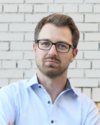 |
Mads Uhlin Hansen, Kube Energy
Mads Uhlin Hansen is the CEO of Kube Energy, a Norwegian renewable energy company dedicated to transitioning international organisations from diesel generators to solar power. Prior to establishing Kube, Mads worked on humanitarian response, first as a donor with the Norwegian Ministry of Foreign Affairs, and later from the United Nations Office for the Coordination of Humanitarian Affairs. He has spent much of his work in field locations and has been based in Burundi, Sudan and Sierra Leone. Today Mads is mostly focused on developing solar systems to power humanitarian operations in South Sudan, Kenya and Somalia. Mads has a Bachelor in Economics from the Norwegian University of Technology and Science and a Master in Political Economics from the University of Stellenbosch. | |
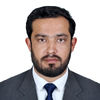 |
Mohammad Omar Patan, IOM South Sudan
In over ten years of work experience, Omar has developed strong project management skills ultimately leading to holding overtime accountability for the design, implementation and execution of complex electrical power grid projects in both infrastructure and emergency contexts in Afghanistan and South Sudan. His most recent engagement has been to, considering the concept of green environment and consistency of power generation & reducing electrical power generation cost, transform existing diesel power plants into hybrid, predominantly, photovoltaic systems in Humanitarian Hubs and IOM offices in South Sudan. He has a bachelor’s degree in Electrical and Electronics Engineering and further, hold a MSc in Project Management. He possess extensive knowledge of power generation from both renewable and diesel sources and power distribution systems and their utilised components Additionally, he is able to demonstrate a skillset that includes evolved ability to analyse and evaluate the demands of customers and, reciprocally, to tailor the design of large-scale infrastructure projects such as hybrid (solar and diesel) power plants and systems. |

